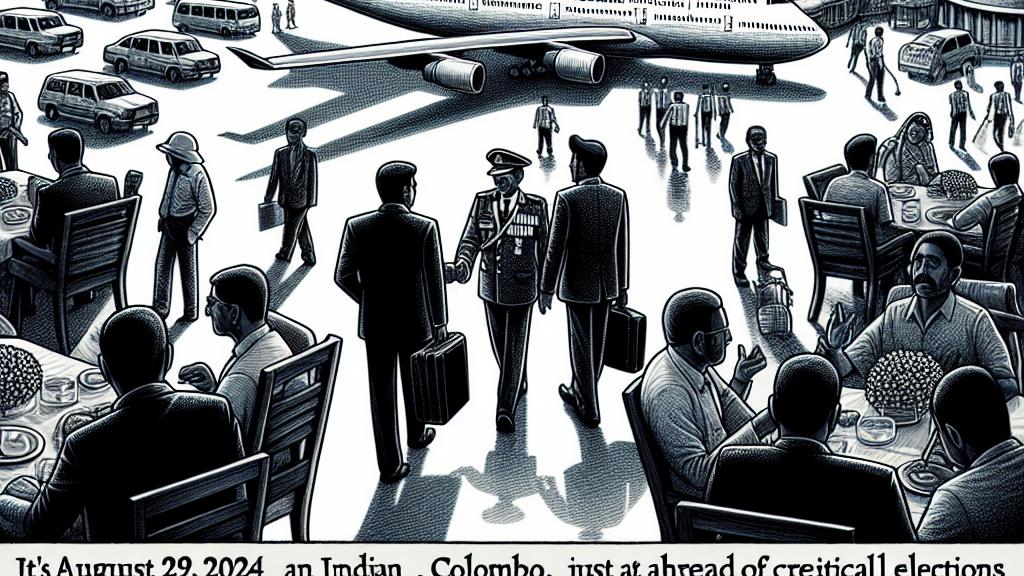Ajit Doval's Colombo Visit: A Diplomatic Power Play Ahead of Elections!
Overview
- Ajit Doval visits Colombo to engage with leaders and attend security discussions.
- His trip comes ahead of Sri Lanka's pivotal presidential elections.
- Strengthening regional security ties and countering external influence is key.

Strategic Timing of the Visit
On August 29, 2024, Indian National Security Adviser Ajit Doval arrived in Colombo, Sri Lanka, at a time marked by significant political activity, just weeks before the presidential elections scheduled for September 21. Doval's presence reflects India's strategic interest in maintaining influence and stability in its immediate neighborhood, especially given the turbulent political climate. He aims to solidify bilateral ties while reviewing discussions related to the Colombo Security Conclave (CSC), a regional initiative established to foster security cooperation against various threats that extend beyond national borders.
The Role and Implications of the Colombo Security Conclave
The CSC, originally formed by India, Sri Lanka, and the Maldives, has expanded to include Mauritius and Bangladesh, focusing on a collaborative approach to tackling issues like terrorism, organized crime, and maritime security. Doval's involvement signals India's commitment to enhancing regional security frameworks, particularly in response to China's expanding influence in the Indian Ocean. Discussions during the conclave have increasingly centered on fostering cooperation in areas such as maritime law enforcement, cyber threats, and information sharing among member states. Strengthening these partnerships not only underscores India's intent to secure its maritime interests but also aims to create a unified front against common dangers.
Political Dynamics and India’s Influence
As elections in Sri Lanka loom, Doval’s visit is strategically poised to affect the political landscape. With potential shifts in leadership on the horizon, India's engagement through Doval could be instrumental in shaping favorable outcomes. Historically, India has aligned itself with political leaders who prioritize Indo-Sri Lankan ties. By fostering dialogue with various political factions, Doval is likely ensuring that India remains a key player, reinforcing its influence amid changing political currents in Colombo. This diplomatic maneuvering is essential for India to safeguard its interests, particularly as it navigates competitive regional dynamics.
Future Directions and Regional Security Outlook
Looking ahead, Doval's initiatives during this visit could lead to enhanced collaboration within the CSC, addressing critical maritime security issues through joint exercises and information sharing. Emphasizing the importance of regional stability, the conclave's future meetings may focus on establishing coordinated responses to non-traditional security threats. The Indian Ocean’s geopolitical landscape is evolving, and India’s proactive stance could solidify its role as a leader in regional security. Sustained engagement will be vital in addressing challenges and facilitating mutual support among CSC nations, positioning India as a central figure in maintaining peace and order in South Asia.

Loading...